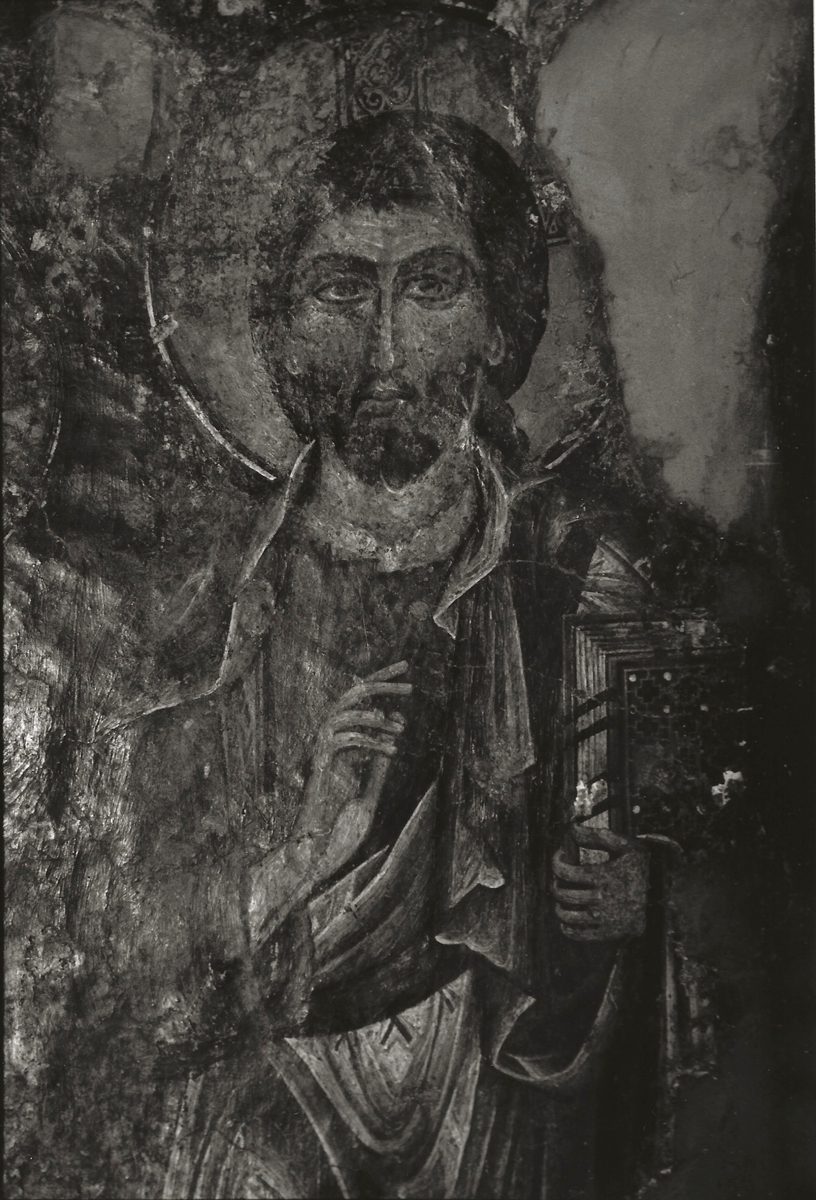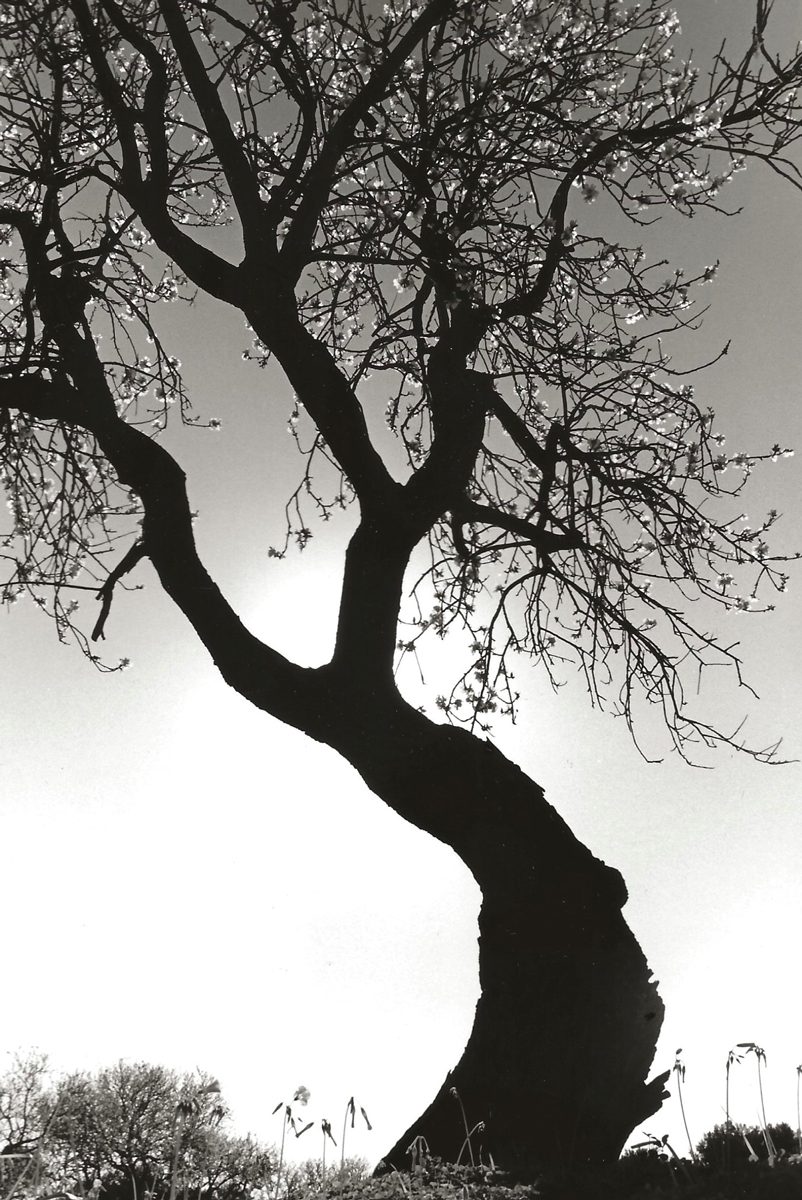A Winter in Greece, 1970 Posted On 26th September 2023 To Magazine & Stories

1969
After too short a visit to Athens’s Parthenon in 1964, I vowed to return soon. By 1969 I was standing on the deck of a wave tossed Yugoslavian freighter with my back to New York City. Watching the grey, stormy, November Atlantic from the quiet of the Navigation Bridge was a peaceful retreat. Our first port-of-call was Casablanca. As a travel companion I had Greek philosopher Nikos Kazantzakis's book, Report to Greco, basically a story of Kazantzakis's search for his identity. It seemed a good reading choice for me, a 26-year-old, also searching for my identity.
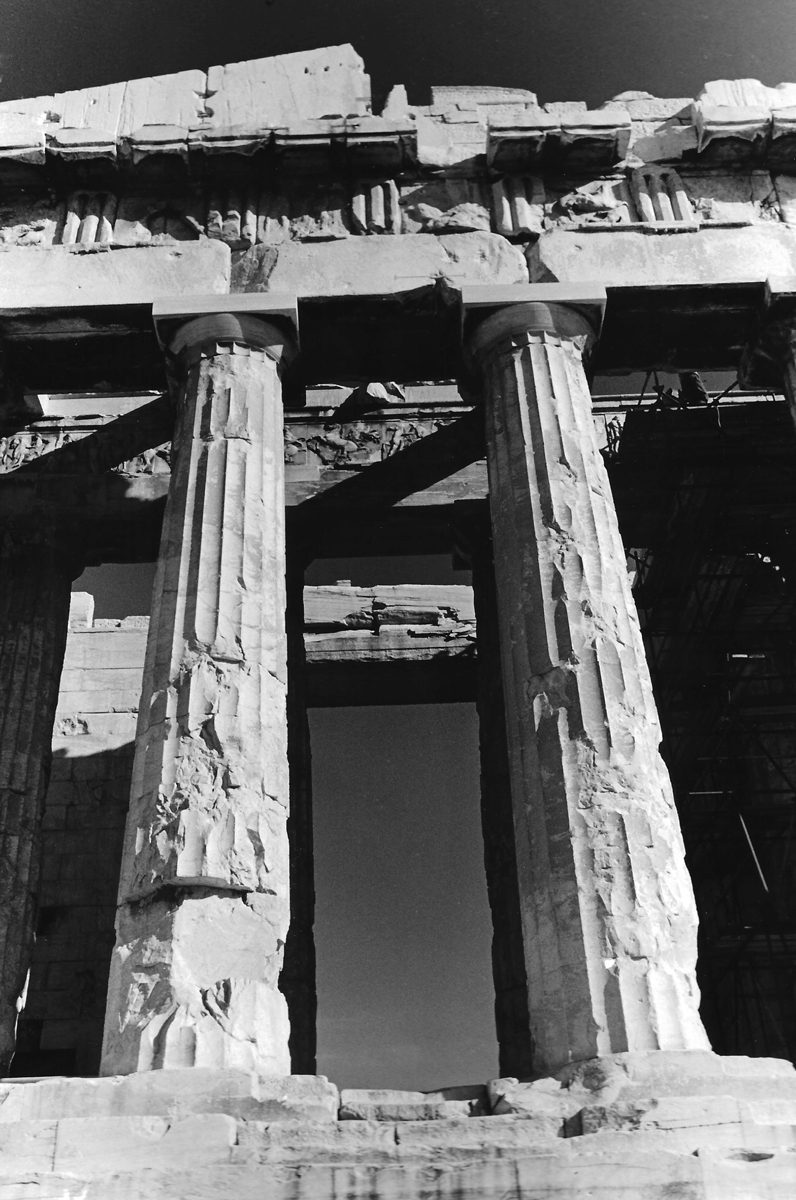
The Parthenon, The Acropolis
Parthenon, Acropolis, Athens, Greece
Two months later, I was finally climbing the Acropolis again to view the Parthenon and the experience surpassed my memories! The Parthenon's white Marble, from nearby Mount Pentelicus, shown in the sun. To help understand the complex Greek culture I read Nikos Kazantzakis's writings and Edith Hamilton's book on Greek mythology. Edith Hamilton describes in her book Mythology: Timeless Tales of Gods and Heroes, a contest between the God Poseidon and the Goddess Athena. Athena made an olive tree, "the most prized of all the trees of Greece," grow on the Acropolis. Athena was judged winner of the contest! Through Edith's eyes I felt connected to an early mythical belief system that formed a base for Greek culture. From Piraeus I took the night ferry to Iraklion, Crete where Nikos Kazantzakis was born in 1883.
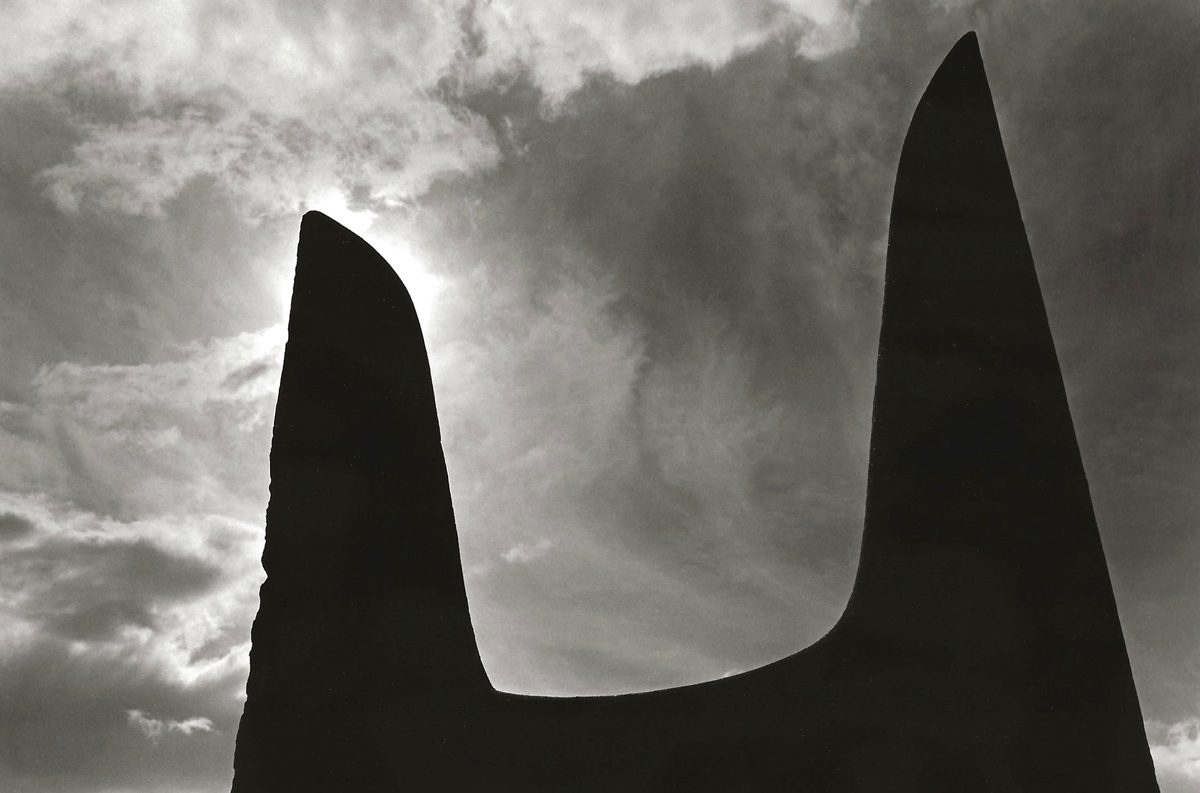
Horns of Consecration
Minoan sculpture "Horns of Consecration" Knossos Palace, Iraklion, Crete
In 3,500 BC Iraklion, Crete was the center of the Minoan civilization. The Minoans were skilled in metallurgy and engineering, working with copper & bronze. They also practiced ritual bull leaping. The sculpture Horns of Consecration represent the bull's horns that athletes would jump over. In Greek Mythology, the Palace of Knossos was the site of the Minotaur's Labyrinth. The Labyrinth was built by Daedalus, father of Icarus who famously flew too close to the sun.

Vineyard workers, Crete
Pruning Grape Vines, Knossos, Crete, Greece 1970
The vineyard that these men were pruning in 1970 (near the Knossos Palace) was also a Minoan vineyard in 2,500 BC! A favorite Minoan wine was 'Passum'! The Minoans built a valuable trade exporting their wines and olive oil around the Mediterranean. The photograph shows a smiling vineyard pruning crew near the Knossos Palace. Edith Hamilton wrote, "Dionysus, the God of the Vine, was born of fire and nursed by rain, the hard burning heat that ripens the grapes and the water that keeps the plants alive."

Donkey saddle, Delphia
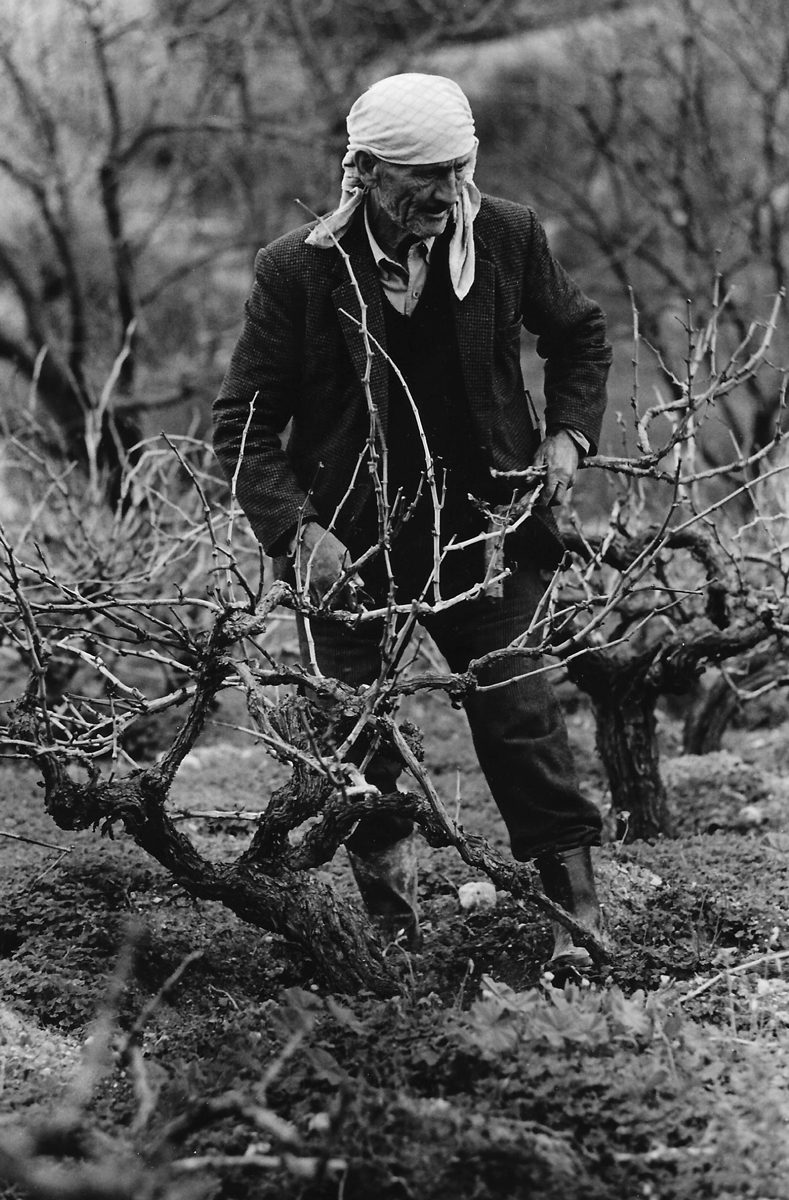
Pruning vine, Crete
Olive Grove
Donkeys were used to carry olives to a press to make olive oil. This family-owned olive grove was within site of Mount Parnassus, Delphi where the Temple of Apollo's oracle, the Pythia, would provide Seekers of Truth with answers. In the past, the Temple had a large inscription of the letter E (Epsilon) on the front. Today E's meaning still remains an enigma!
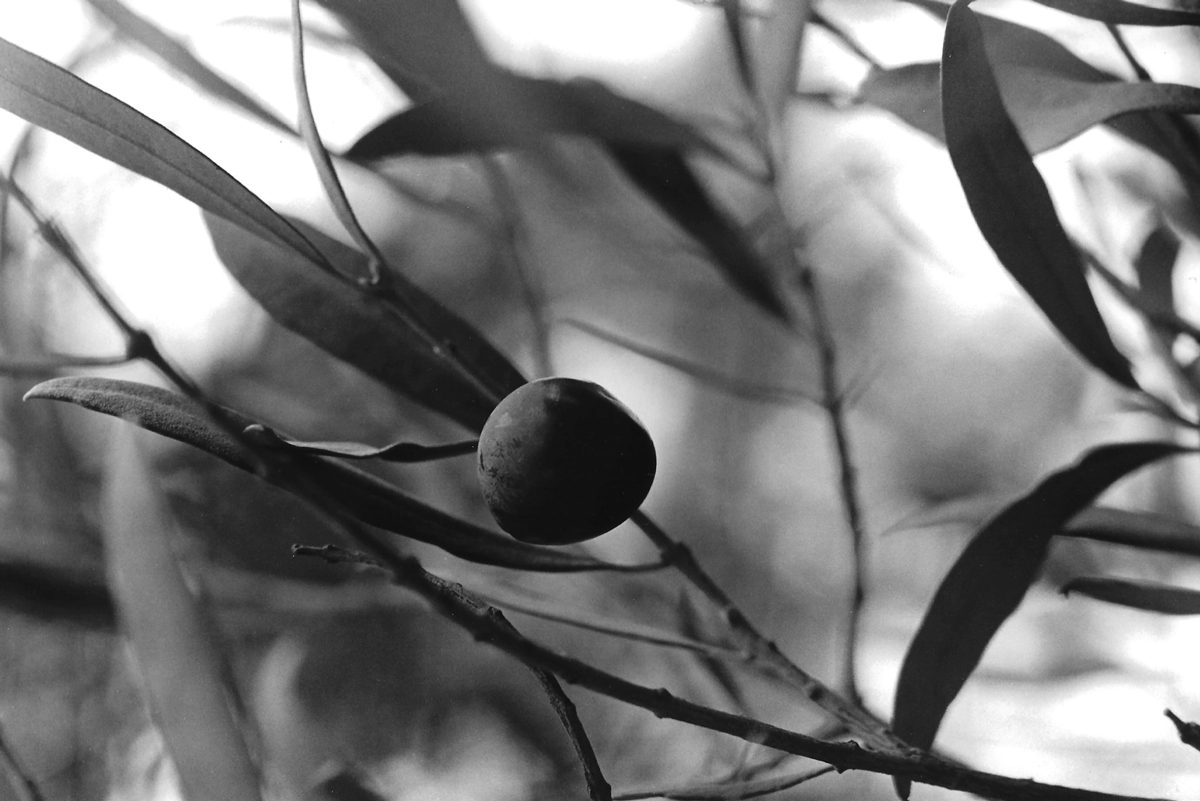
Ripe, "gray-gleaming olive", Delphi
The Ripe Olives
In January the olives were gathered. They knocked the olives from the trees with long poles. The olives were gathered up by hand and put into baskets which the donkeys caried to an olive press. In Greek mythology Athena created the olive trees. Here is my photograph of "The gray-gleaming olive, Athena showed to men," described by Edith Hamilton. Also a photograph of the family olive grove owners having lunch. I helped pick up the ripe olives from the ground and later shared lunch. They introduced me to sesame-seed Halva, one of the best of many Greek sweets!
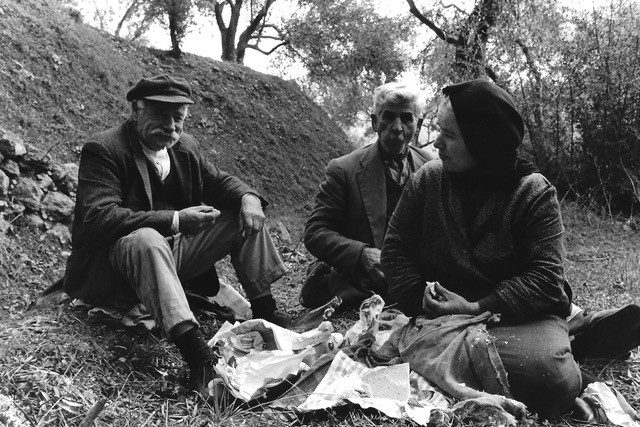
Lunch, Delphi
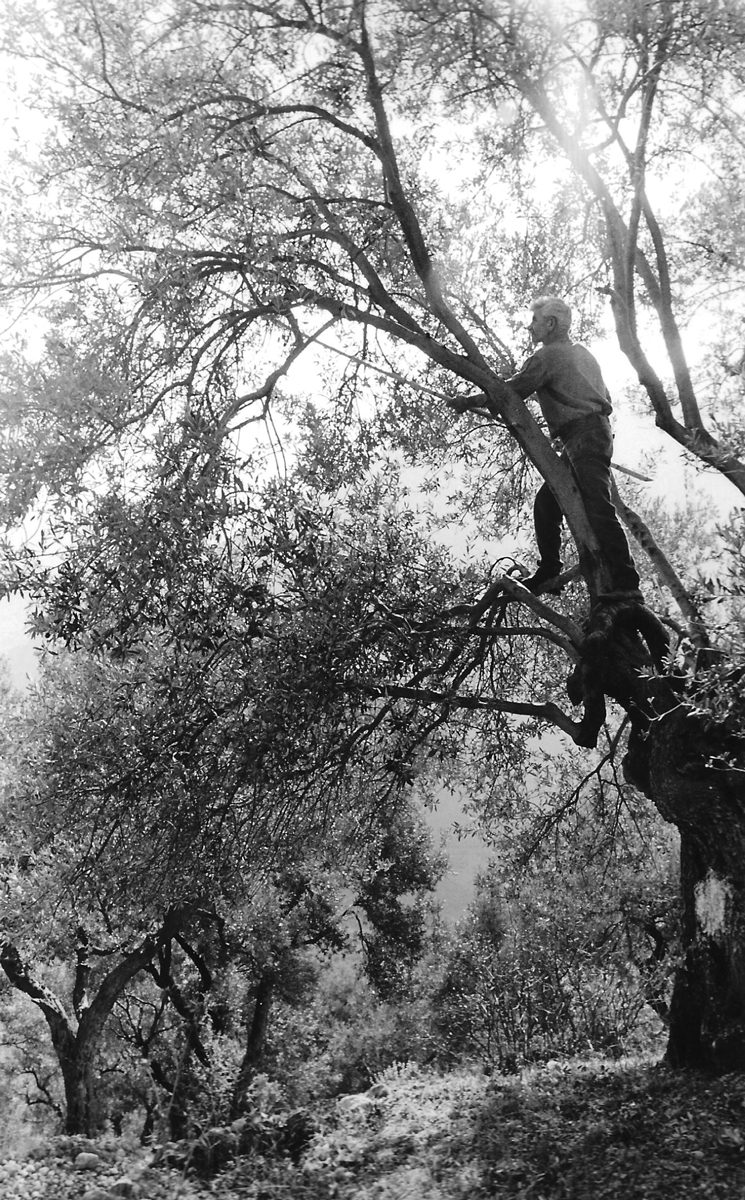
Gathering Olives
Building Donkey Saddles, Sita, Crete
Many craftsmen were involved in making donkey saddles. Carving a wooden donkey saddle, Sita, Crete.
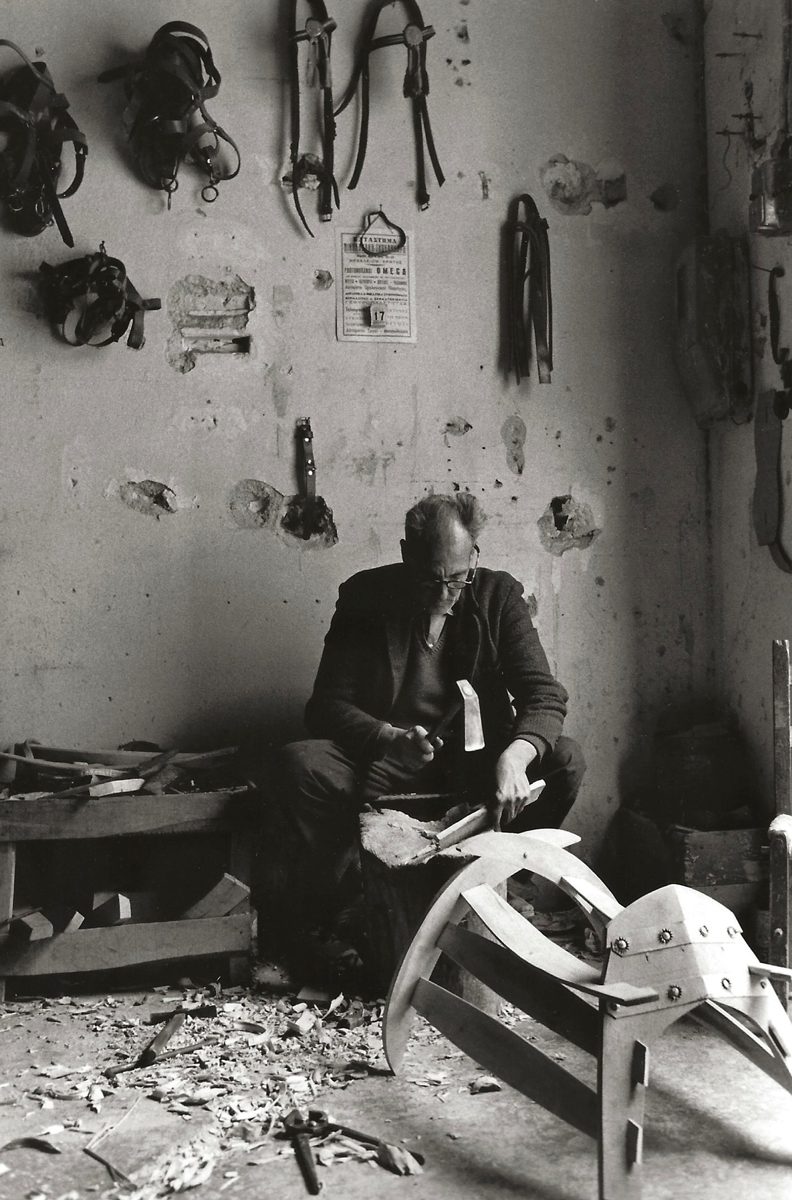
Skillfully building by hand the frame for a donkey saddle.
Byzantine Church
The 13th Century Byzantine Church of Panagia Kera is the major attraction to Krista, a small mountain village in Eastern Crete. On a hike I climbed upward from the village to the music of the goat herd bells. Nikos Kazantzakis wrote that the shepherds choose bells to provide a unique sound for their flock. A haunting Fresco depiction of Christ is part of the many 13th century frescos in the Church of Panagia Kera in Krista. Kazantzakis wrote, "three great figures, Odysseus, Nicephorus Phocas and Christ were toiling inside me to acquire faces."
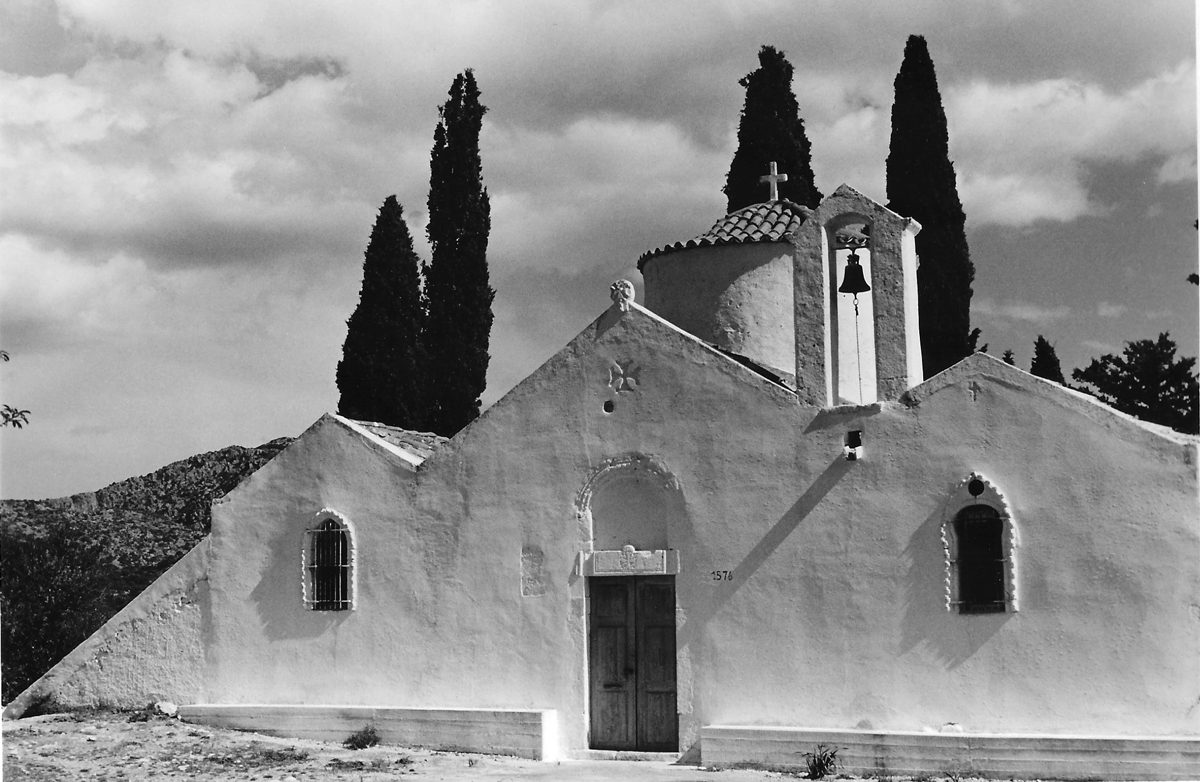
Krista
- A 13th-Century fresco of Christ in the Church of Panagia Kera, Krista, Crete
- An Almond Tree in Bloom, Chora Sfakion, Crete
Kazantzakis
As warm and sunny weather approached my Winter Journey extended to Easter! Kazanatzakis wrote, "I said to the almond tree, Sister, speak to me of God, And the almond tree blossomed."
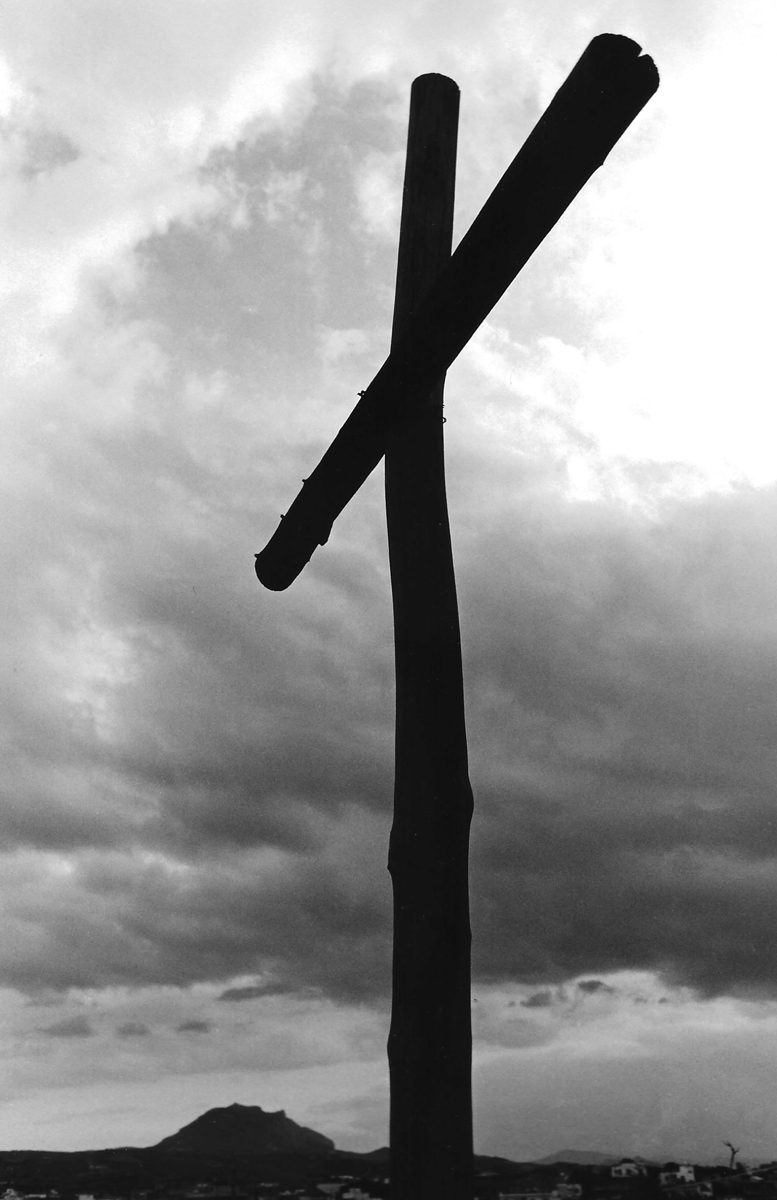
Nikos Kazantzakis's grave site, Iraklion, Crete.
Iraklion's old city wall
Nikos Kazantzakis's grave site is located on Iraklion's old city wall. He wrote, "Standing on a street corner with hands reaching out to passers-by: Alms, brothers! A quarter of an hour from each of you Oh, for a little time, just enough to let me finish my work. Afterwards, let Charon come."
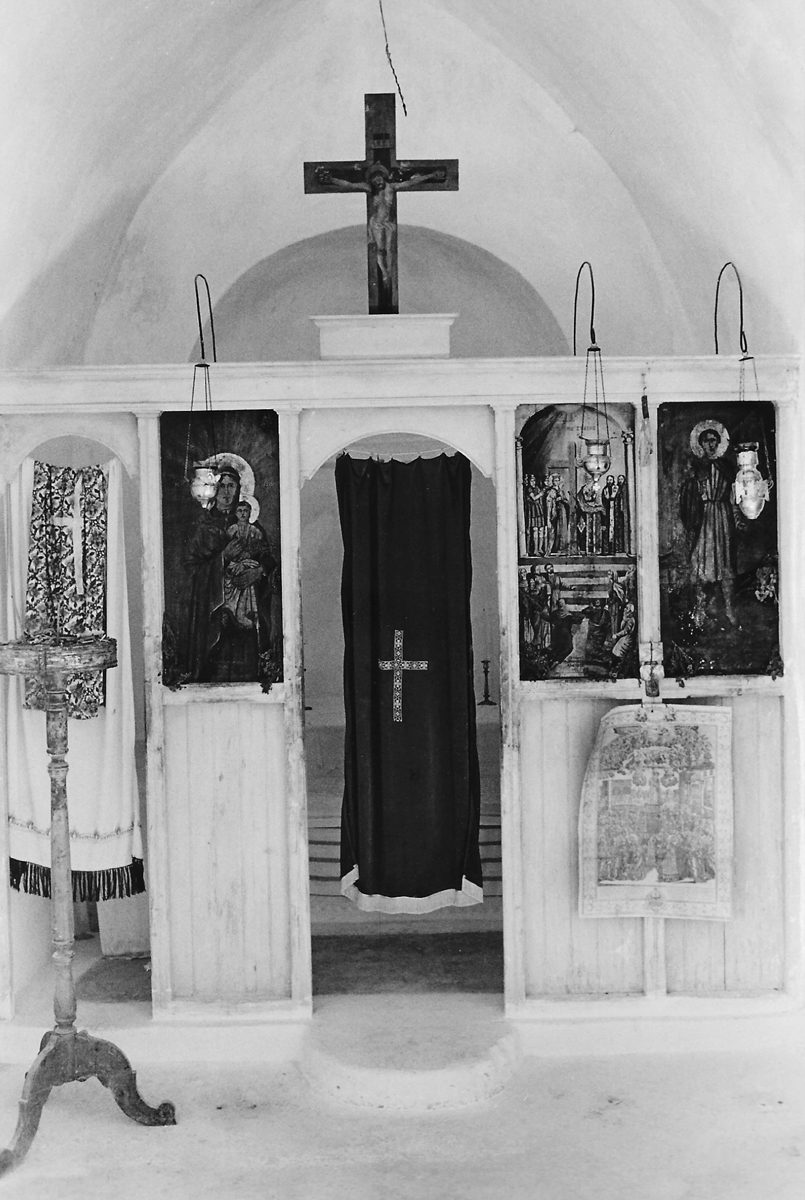
This photograph shows a small Wayside Chapel miles from any village. The Chapel was immaculate and freshly whitewashed. It provided me with a reminder of the importance that religion has in Greece.
"A Winter in Greece, 1970"
"A Winter in Greece, 1970" will be exhibited at the Watertown Free Public Library, Watertown, Massachusetts for the month of October, 2024. Twenty-one Gelatin Silver Prints will be exhibited. In 2023 I received a Grant from the Massachusetts Cultural Council which allowed me to print this exhibit. The print image size is 10 X 15 inches. I worked with two Nikon F cameras and 35mm, 50mm & 105mm lenses. For exposure readings I used a Weston Master V meter. These negatives are now 53 years old! I reprinted the negatives in 2023 on ILFORD Multigrade Fiber Base Classic Paper working with ILFORD Multigrade Printing Filters.
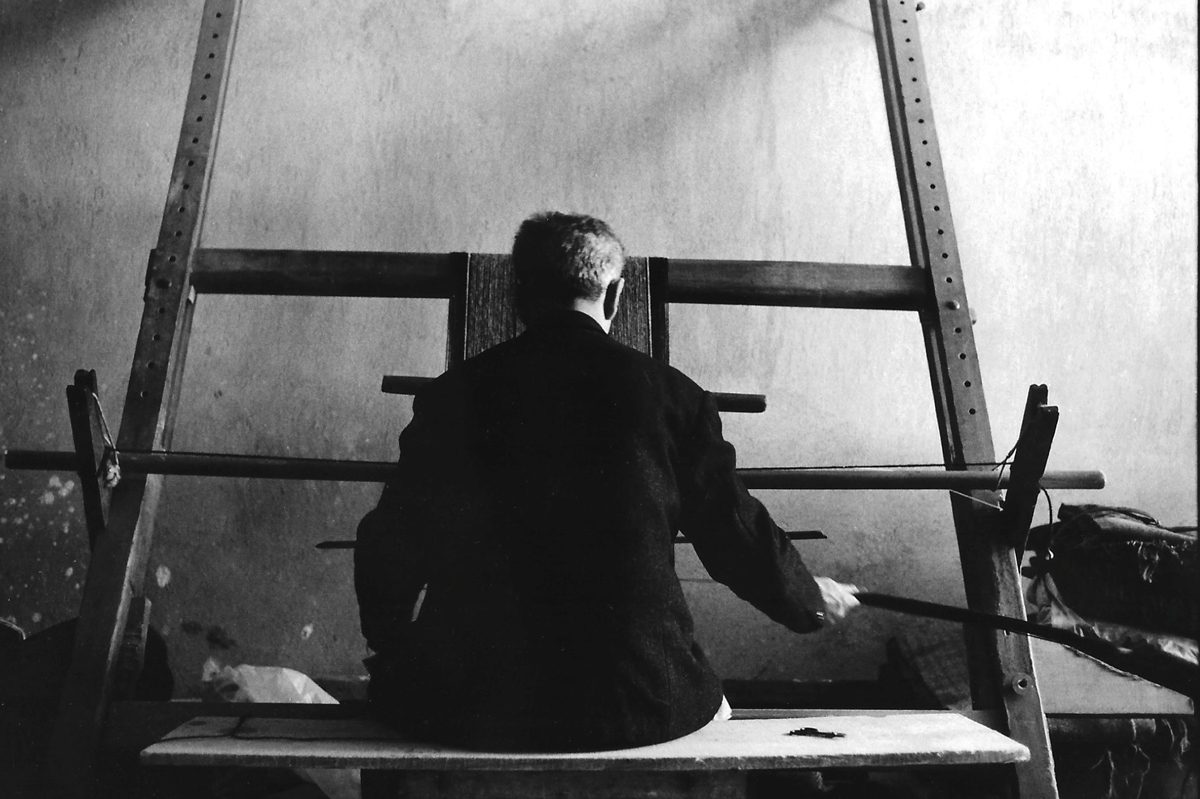
Weaving Donkey Saddle Bags, Xanthi
Images ©Joseph Flack Weiler
About The Author

Joseph Flack Weiler
Joseph Flack Weiler has been exhibiting his fine-art black & white photography since 1965. From 1987 to 2011 he owned the Weiler Gallery in Gloucester where he exhibited a selection of his Equivalent & Documentary style images. He graduated with honors from Rochester Institute of Technology, School of Photography. He also studied journalism at Syracuse University and fine-art photography with Minor White.
You can follow Joseph on Facebook and see more of his work at https://www.facebook.com/weilerphotogallery
You can see Weiler’s trip to Afghanistan at ilfordphoto.com/faces-of-afghanistan-1976







